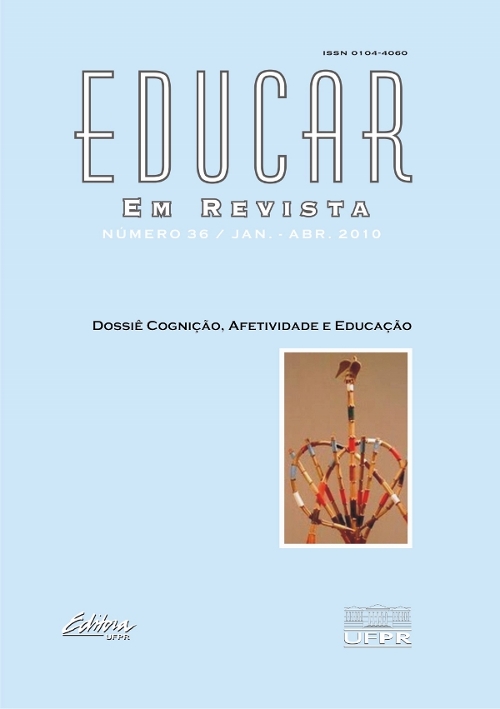Affection as an ecologic development process
Abstract
The present paper describes emotional development as one of the most important aspect that increases and guides human development. It could be considered as an important “layer” of the development, as it is referred by the bioecological systems theory, proposed by Bronfenbrenner. The abilities to establish relationships depend on emotional aspects, and might be seen as an ecological developmental process. The presence of emotional aspects in relationships was seemed as an essential element that effectively ensures proximal process, in which attachments arises. Besides, emotions were described as important resources employed to lead changes that happens during one’s life. As a constituent of human development, emotional development derives from individual interactions with immediate environment by which one is surrounded. In this perspective, it was regarded as an element to the various contexts or systems stressed by Ecological Theory, including the microsystem, mesosystem, exosystem, and macrosystem. Finally, it was emphasised the need to establish emotional relationships over time to strengthen one’s abilities to adapt through the life circle. Thus, emotional development constitutes as an element to ensure the stability and safety in this process.
Keywords: Affection; Bioecological Systems Theory; Proximal Process; Change; Stability.
Published
How to Cite
Issue
Section
License
Copyrights for articles published in Educar em Revista belong to the author, with the first publication copyrights reserved to the journal. The journal offers public access (Open Access), and its articles are of free use, with specific assignments, in educational and non-commercial applications.



